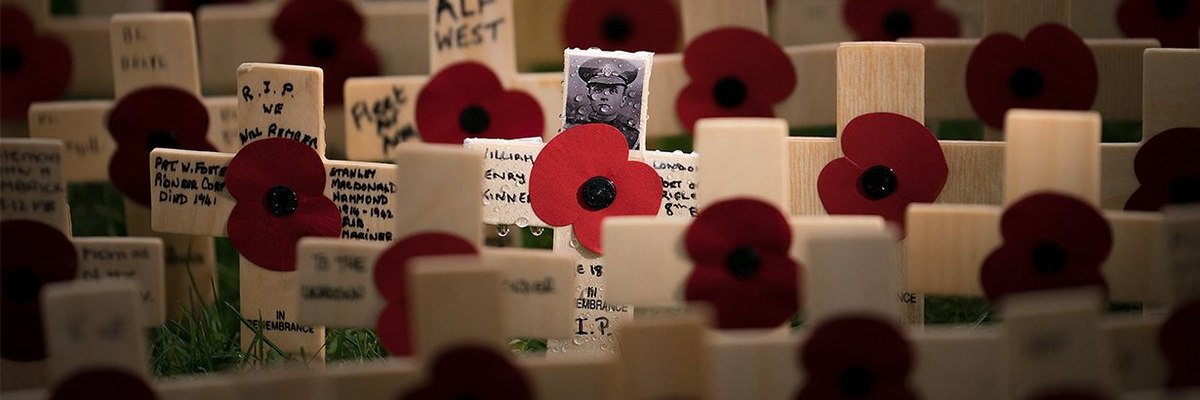YouGov explores attitudes to the Great War 100 years on from the end of hostilities
Asked how we should look back on the part we played in the Great War, one in three Brits (32%) think we should be proud of our contribution, while one in eight (12%) think it’s something to be regretted. A further 21% think we both are true.
This means that just over half (53%) of Brits overall think we should be proud and a third (33%) say it’s a source of regret.
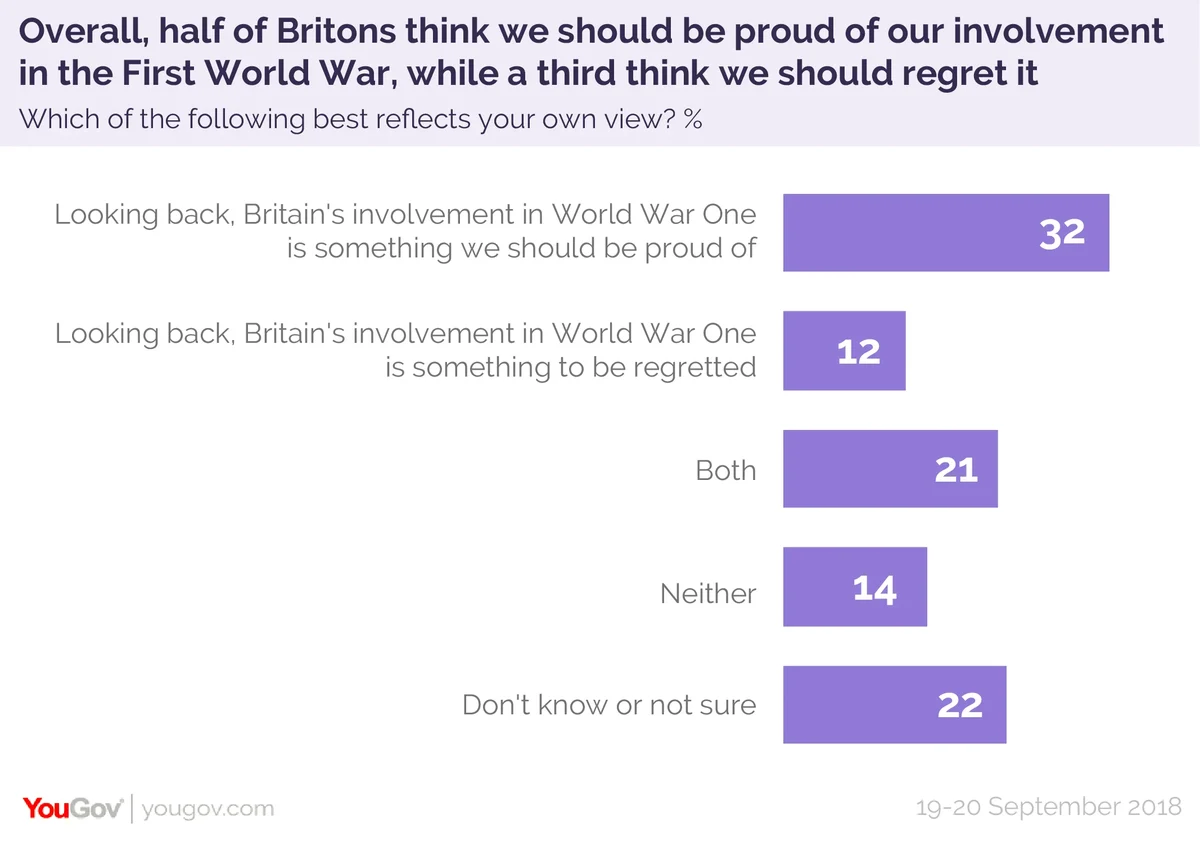
Brits blame Germany and Austria-Hungary for the war
When asked to assign blame for the outbreak of war, a majority of Brits (53%) pin it on Germany and Austria-Hungary. By contrast, just 2% believe that the Entente powers – Britain, France and Russia – were to blame. A further 18% believe both sides were equally to blame.
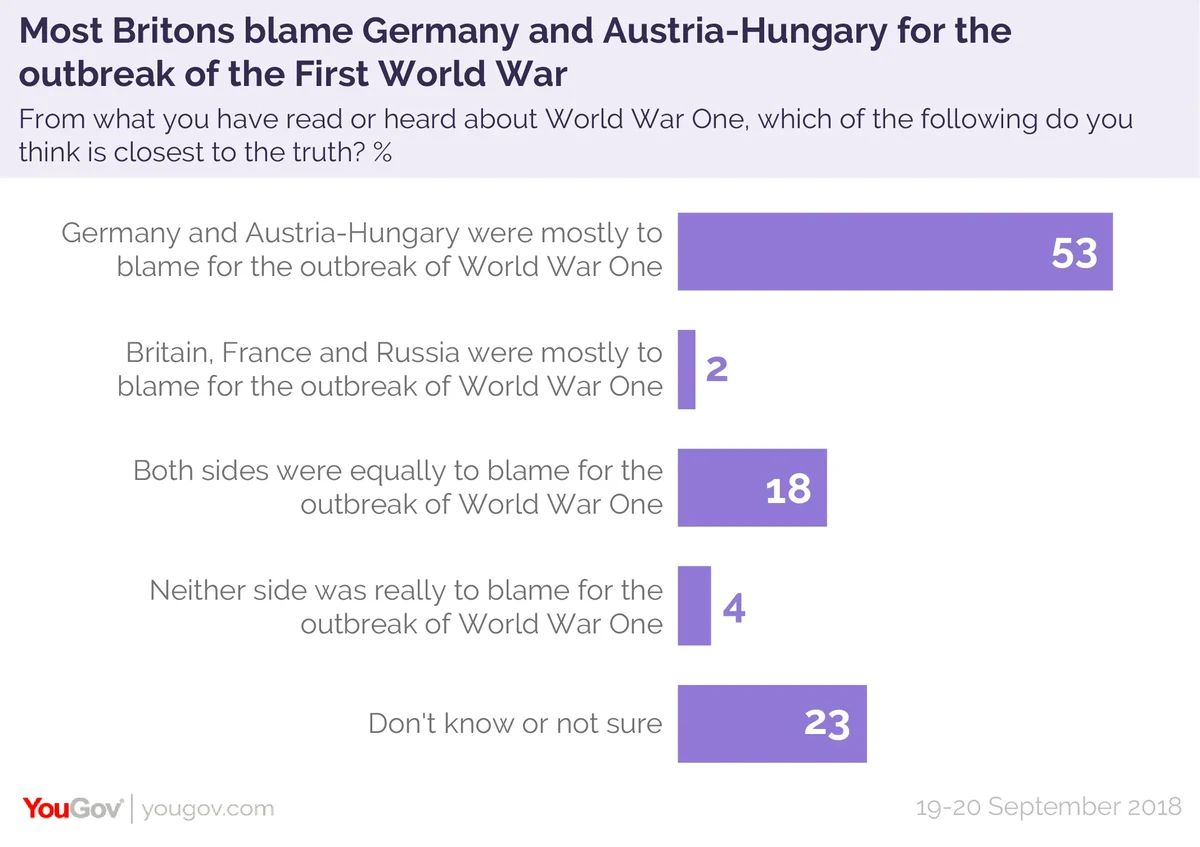
Brits also blame the high levels of casualties on the incompetence of the generals
The notion that British soldiers were “lions led by donkeys” is still widely held by the public. When asked which of two statements they thought was closest to the truth, around half (52%) of Brits side with the statement “British troops in World War One were badly served by their generals, who made poor strategic decisions and needlessly wasted thousands of lives in pointless attacks”.
Just 14% agree with the counter-narrative that “British troops in World War One were well served by their generals, who initially struggled with the trench warfare of the era but ultimately made the decisions that led to victory”.
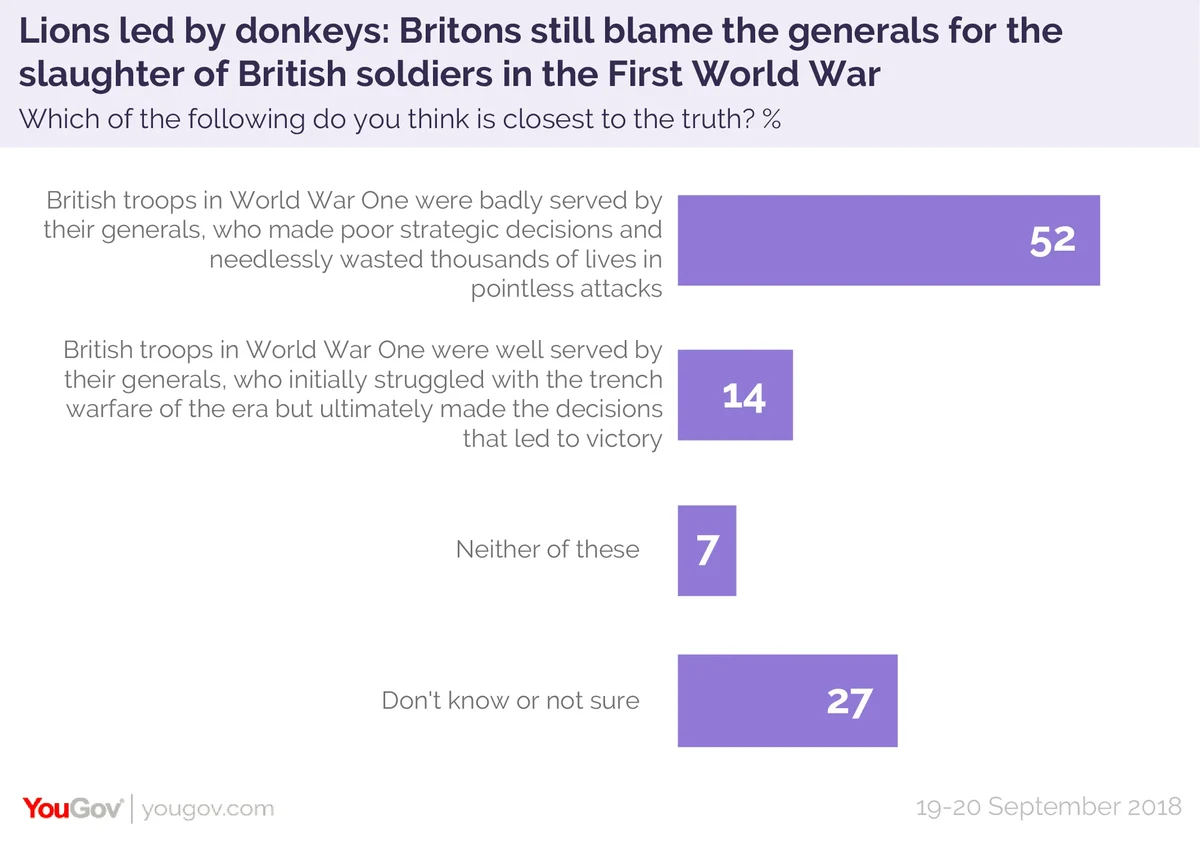
Brits are more likely than not to think that World War One was a ‘just’ war
While more split than they are on the other questions, Brits are nevertheless more likely to see the Great War as one between right and wrong, rather than one in which neither side were heroes. Four in ten (40%) Britons say that “The First World War was a just war and it was right and proper that Britain and her allies stood up against German imperialism” comes closest to their view of the truth.
A quarter (26%) take the opposing view that “The First World War was between imperialist countries that were just as bad as each other, and Britain's behaviour was no better than Germany's.”
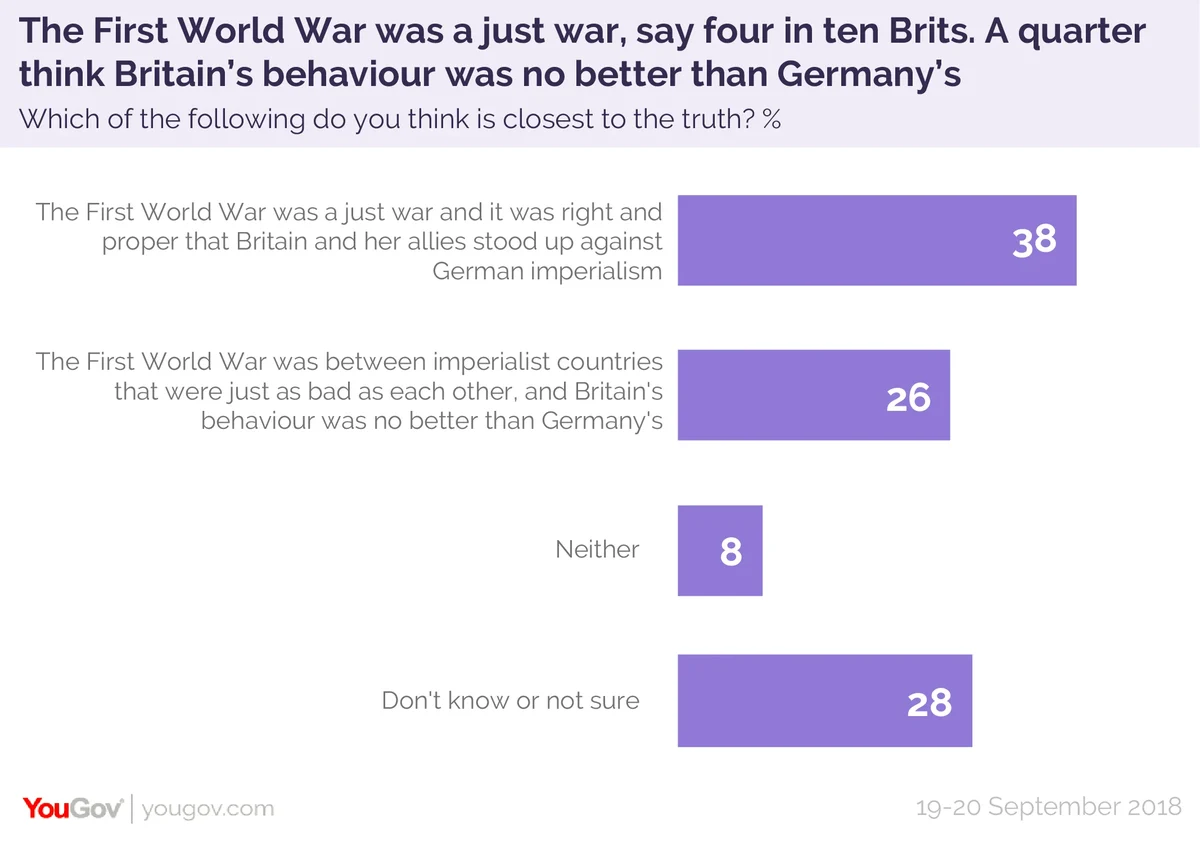
Approaching half of Brits believe we teach World War One badly in schools
People of a certain age will remember being taught about World War One by being shown the final episode of Blackadder, where the cast finally go over the top. Overall 44% of Brits think schools do badly at teaching the history of the First World War, compared to only 19% who think they do well. Young people are noticeably more likely to think that the war is being taught well than their elders – 32% of 18-24 year olds say they think so, compared to 11% of those aged 65 and older.
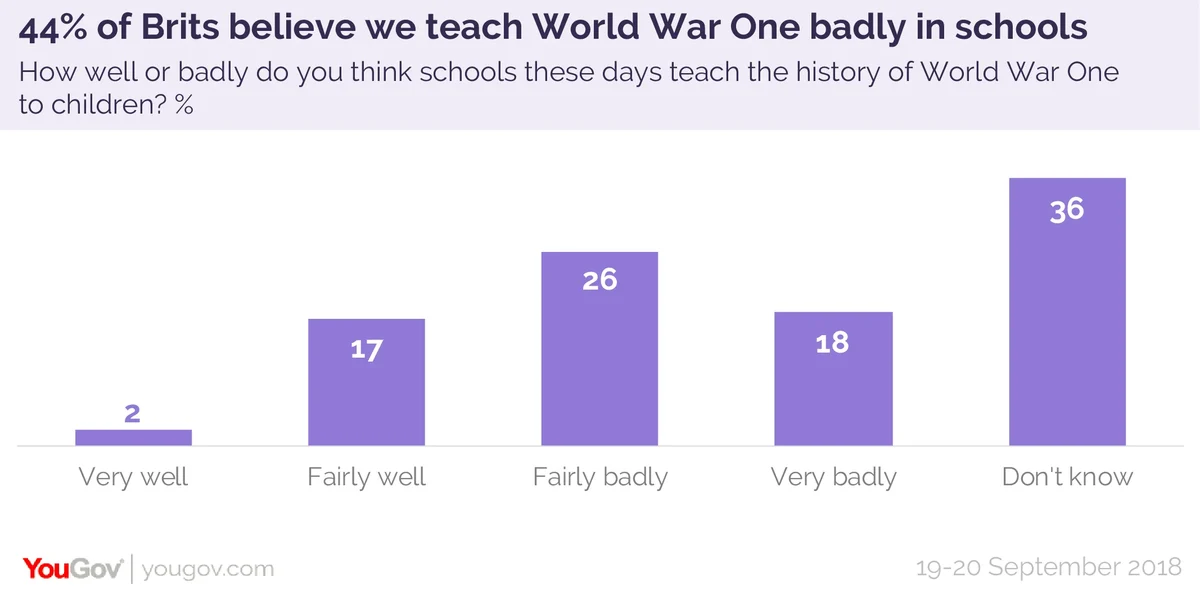
Brits are split on what they’re supposed to be remembering this Remembrance Sunday
Results from a separate survey also reveal that Britons aren’t clear on what we are commemorating when we fall silent for two minutes. Four in ten (40%) think that we are remembering those who served in the First World War and later conflicts, but almost as many (39%) think that we are only remembering those who died in these conflicts.
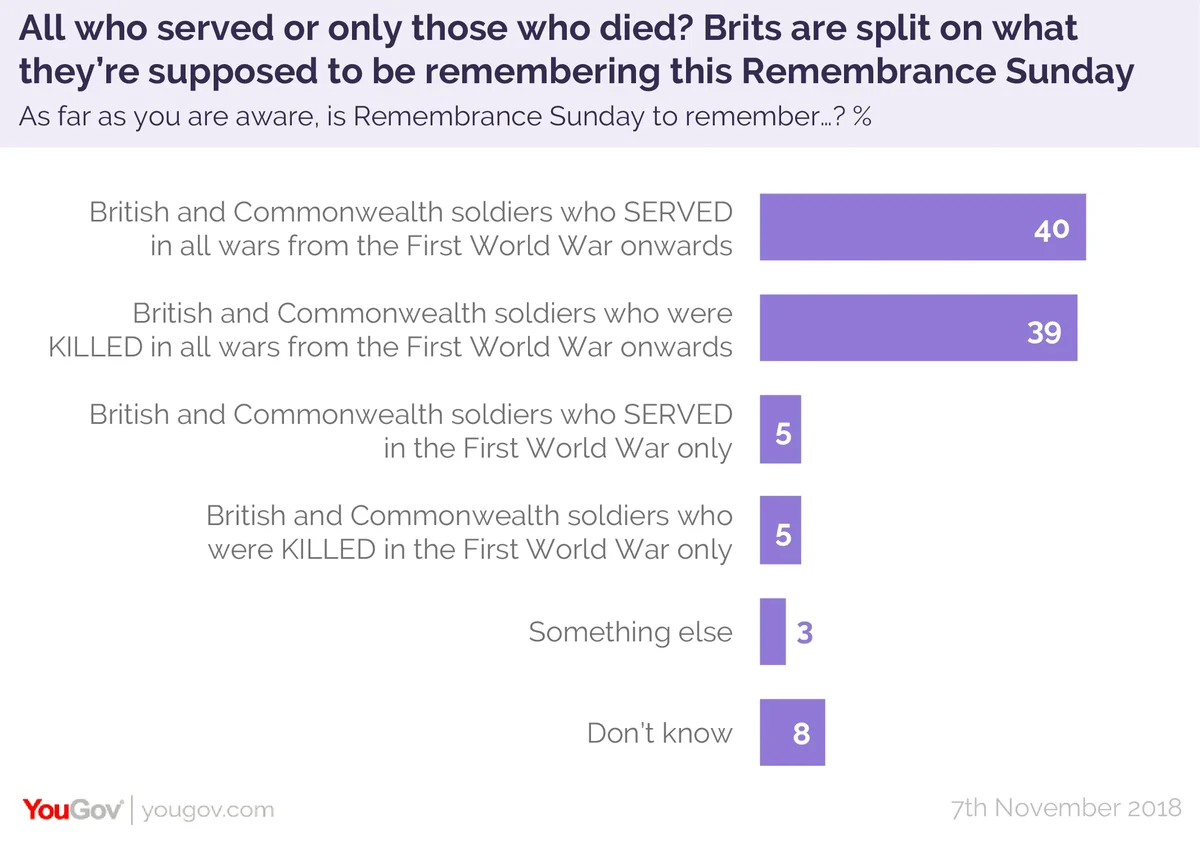
The broader definition is correct: the government describes this Sunday’s commemorations as being about servicemen and women’s “contribution” in conflicts, while the British Legion talks of honouring “all who have suffered or died in war”.
Combatting the confusion matters. If those who wear the poppy are only remembering the fallen, they may forgot those who survived, many of whom still need help from the society that relied on them for protection. The government’s issuing of £10m extra funding for mental health aid to veterans is a reminder that suffering lingers even after conflicts end.
Photo: Getty
